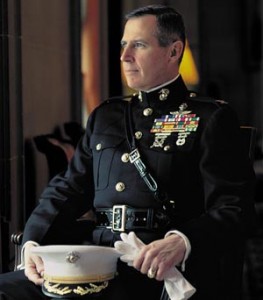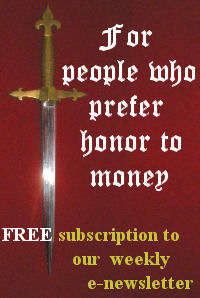
Throughout history, two sides, two economic outlooks, two lifestyles have long opposed each other as if engaged in constant combat.
On the one side, there is the rule of money with a set of secular values, which include quantity, function, efficiency, and utility. This rule tends to reduce everything to terms of self-interest, matter, and production.
On the other side is another rule with its own set of values that opposes that of money. We experience some difficulty in naming this opposing rule. Many authors have written about it using words like “moral,” “status,” or “humane” to describe it. They list virtue, tradition, or prestige as its attributes. However, the overwhelming tide of change wrought by our industrial society has so undermined the meaning of these terms as to render difficult the task of finding a word that characterizes this rule entirely.
We think honor best describes this rule since the word survives less sullied from modernity’s brutal egalitarianism. Honor conveys the definition of an authentic esteem given to all that is excellent in a social atmosphere of respect, affection, and courtesy. It towers above that which is strictly material, functional, and practical.
By using the word honor instead of prestige, for example, we avoid the misunderstanding  of those who would confuse our order with vainglory, vanity, or pride. Rather, honor conveys the idea of values that cannot be bought and sold. It spreads the atmosphere of tranquility and temperance that we desire.
of those who would confuse our order with vainglory, vanity, or pride. Rather, honor conveys the idea of values that cannot be bought and sold. It spreads the atmosphere of tranquility and temperance that we desire.


